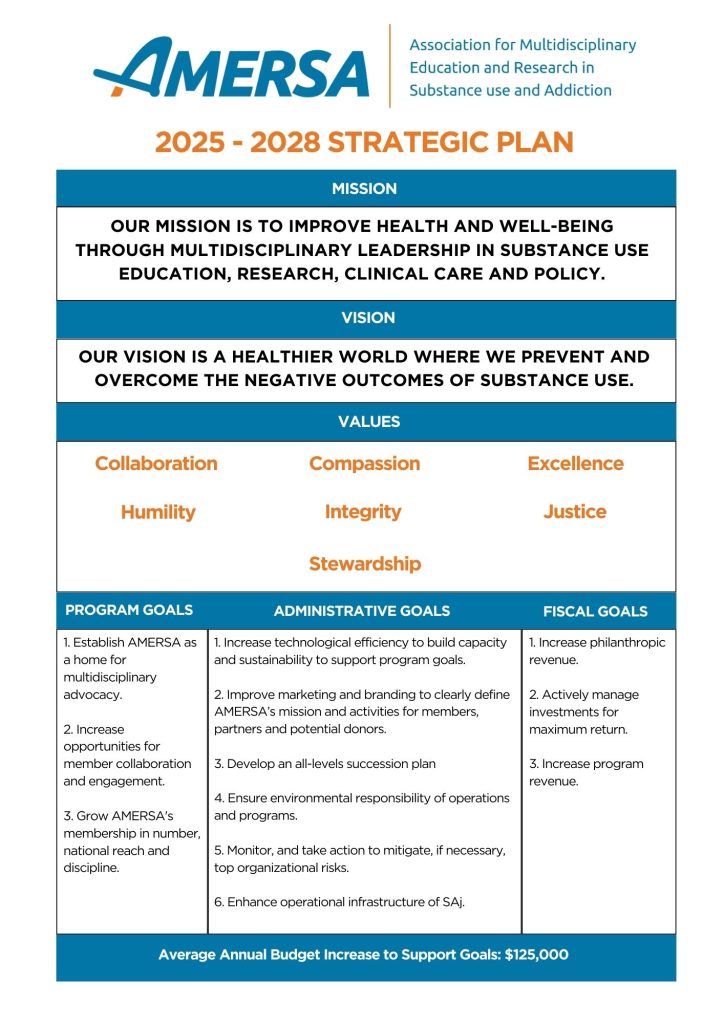AMERSA’s mission is to improve health and well-being through multidisciplinary leadership in substance use education, research, clinical care and policy.
AMERSA’s Strategic Plan
In October 2024, AMERSA’s Board of Directors approved a strategic plan to set a course and guide leadership of the organization through 2028. (Click the image to open in a new window.)

From our founding in 1976, through our impact and on to our vision for the future, read about the history of AMERSA.
Samet JH, Galanter M, Bridden C, Lewis DC. Association for Medical Education and Research in Substance abuse. Addiction. 2006 Jan;101(1):10-5. doi: 10.1111/j.1360-0443.2005.01228.x. PMID: 16393188.
Lewis D, Schnoll SH MD, PhD. Commentary On The 40th Anniversary of AMERSA: AMERSA at 40: How It All Began And How It Survived. Subst Abus. 2018;39(2):134-138. doi: 10.1080/08897077.2018.1495892. PMID: 31032745.
AMERSA People & Passion, Episode 9: History of AMERSA with Sid Schnoll
More about AMERSA
Bylaws
COI Policy
AMERSA strives to ensure that all of its activities meet the highest standard of integrity and are free of any real or perceived conflicts of interest. See AMERSA’s general Conflict of Interest Policy.
FCOI Policy
In addition, in compliance with the U.S. Department of Health and Human Services Public Health Service (“the PHS FCOI Rules”) as found in 42 CFR Part 50 Part F (titled Promoting Objectivity in Research), AMERSA’s Financial Conflict of Interest (FCOI) relevant to all Investigators for NIH-supported AMERSA activities can be found here.